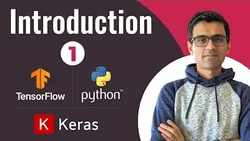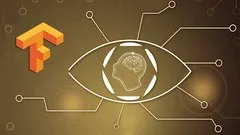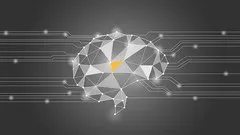
TensorFlow 20 Complete Course - Python Neural Networks for Beginners Tutorial 
This TensorFlow 20 Complete Course is an excellent introduction to Python Neural Networks for beginners. It covers the fundamentals of machine learning, introduces TensorFlow, and covers core learning algorithms. It also covers neural networks with TensorFlow, deep computer vision with convolutional neural networks, natural language processing with RNNs, and reinforcement learning with Q-Learning. The course concludes with a summary and next steps. This course is a great way to get started with TensorFlow and neural networks. ▼
ADVERTISEMENT
Course Feature
![]() Cost:
Cost:
Free
![]() Provider:
Provider:
freeCodeCamp
![]() Certificate:
Certificate:
Paid Certification
![]() Language:
Language:
English
![]() Start Date:
Start Date:
On-Demand
Course Overview
❗The content presented here is sourced directly from freeCodeCamp platform. For comprehensive course details, including enrollment information, simply click on the 'Go to class' link on our website.
Updated in [February 21st, 2023]
1. Machine Learning Fundamentals: Learners can gain a comprehensive understanding of the fundamentals of machine learning, including supervised and unsupervised learning, linear regression, and logistic regression. They will also learn about the different types of neural networks and how they are used in machine learning.
2. Introduction to TensorFlow: Learners can gain an understanding of the TensorFlow library and how it can be used to create and train neural networks. They will also learn how to use the library to create and train models, as well as how to deploy them in production.
3. Core Learning Algorithms: Learners can gain an understanding of the core learning algorithms used in machine learning, such as gradient descent, backpropagation, and stochastic gradient descent. They will also learn how to use these algorithms to optimize the performance of their models.
4. Neural Networks with TensorFlow: Learners can gain an understanding of how to use TensorFlow to create and train neural networks. They will also learn how to use the library to create and train models, as well as how to deploy them in production.
5. Deep Computer Vision - Convolutional Neural Networks: Learners can gain an understanding of how to use convolutional neural networks to create deep computer vision models. They will also learn how to use the library to create and train models, as well as how to deploy them in production.
[Applications]
After completing this course, learners can apply their knowledge of TensorFlow to create and train neural networks for a variety of tasks. They can use the core learning algorithms to build models for supervised and unsupervised learning. They can also use convolutional neural networks to build models for computer vision tasks. Additionally, they can use recurrent neural networks to build models for natural language processing tasks. Finally, they can use Q-Learning to build models for reinforcement learning tasks.
[Career Paths]
1. Machine Learning Engineer: Machine Learning Engineers are responsible for developing and deploying machine learning models. They use a variety of tools and techniques, such as TensorFlow, to build and optimize models. They also need to be able to interpret and explain the results of their models. The demand for Machine Learning Engineers is growing rapidly, as more companies are looking to leverage the power of machine learning to improve their products and services.
2. Data Scientist: Data Scientists use a variety of techniques, such as TensorFlow, to analyze large datasets and uncover insights. They need to be able to interpret and explain the results of their analyses. Data Scientists are in high demand, as companies are increasingly looking to leverage the power of data to improve their products and services.
3. Artificial Intelligence Engineer: Artificial Intelligence Engineers are responsible for developing and deploying AI-based solutions. They use a variety of tools and techniques, such as TensorFlow, to build and optimize AI models. They also need to be able to interpret and explain the results of their models. The demand for Artificial Intelligence Engineers is growing rapidly, as more companies are looking to leverage the power of AI to improve their products and services.
4. Deep Learning Engineer: Deep Learning Engineers are responsible for developing and deploying deep learning models. They use a variety of tools and techniques, such as TensorFlow, to build and optimize models. They also need to be able to interpret and explain the results of their models. The demand for Deep Learning Engineers is growing rapidly, as more companies are looking to leverage the power of deep learning to improve their products and services.
Course Provider

Provider freeCodeCamp's Stats at AZClass
Discussion and Reviews
0.0 (Based on 0 reviews)
Explore Similar Online Courses

Learn Live - Design a data partitioning strategy

SPSS for Beginners - Full Course

Deep Learning With Tensorflow 20 Keras and Python

Tensorflow on Googles Cloud Platform for Data Engineers

Deep Learning and Reinforcement Learning with Tensorflow

Tensorflow Deep Learning - Data Science in Python

Neural Networks with Tensorflow

TensorFlow Hub: Deep Learning Computer Vision and NLP

LEARNING PATH: TensorFlow: Computer Vision with TensorFlow

Hands-On Transfer Learning with TensorFlow 20

Human Tracking & Counting using TensorFlow & Deep Learning


Start your review of TensorFlow 20 Complete Course - Python Neural Networks for Beginners Tutorial